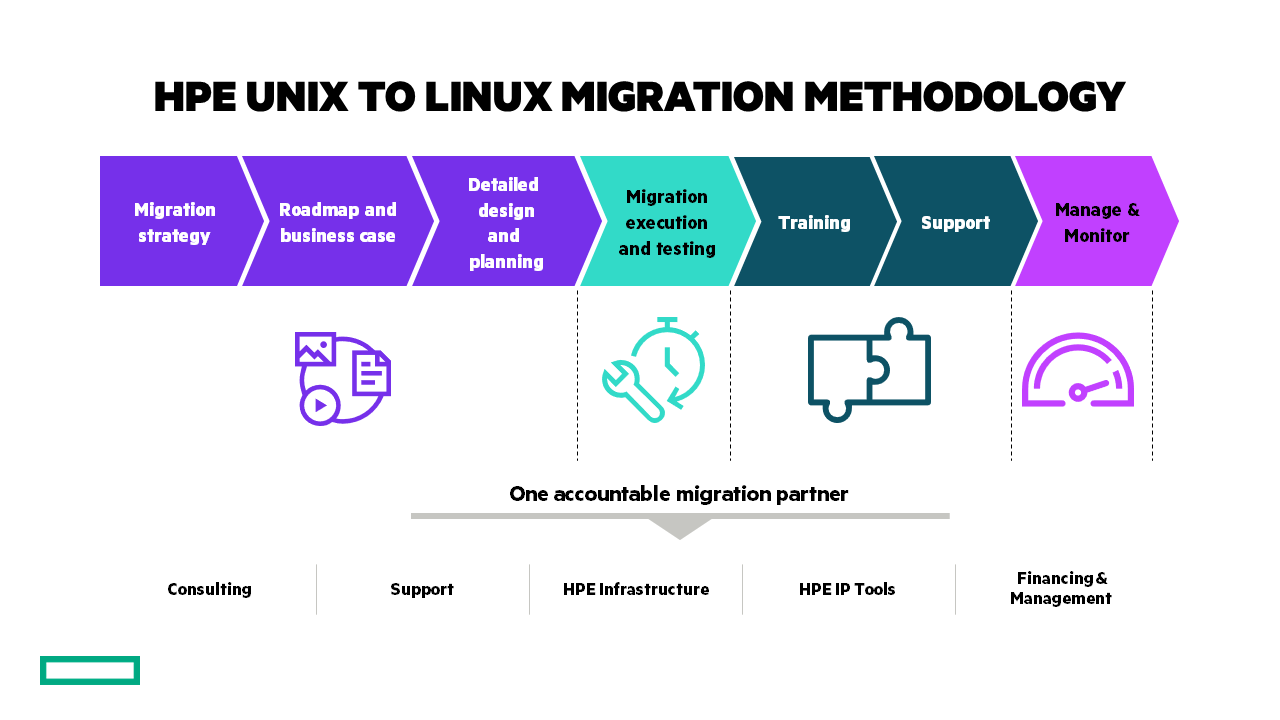- Community Home
- >
- Servers and Operating Systems
- >
- Servers & Systems: The Right Compute
- >
- Unlock the value of data trapped in legacy Unix sy...
Categories
Company
Local Language
Forums
Discussions
Forums
- Data Protection and Retention
- Entry Storage Systems
- Legacy
- Midrange and Enterprise Storage
- Storage Networking
- HPE Nimble Storage
Discussions
Discussions
Discussions
Forums
Discussions
Discussion Boards
Discussion Boards
Discussion Boards
Discussion Boards
- BladeSystem Infrastructure and Application Solutions
- Appliance Servers
- Alpha Servers
- BackOffice Products
- Internet Products
- HPE 9000 and HPE e3000 Servers
- Networking
- Netservers
- Secure OS Software for Linux
- Server Management (Insight Manager 7)
- Windows Server 2003
- Operating System - Tru64 Unix
- ProLiant Deployment and Provisioning
- Linux-Based Community / Regional
- Microsoft System Center Integration
Discussion Boards
Discussion Boards
Discussion Boards
Discussion Boards
Discussion Boards
Discussion Boards
Discussion Boards
Discussion Boards
Discussion Boards
Discussion Boards
Discussion Boards
Discussion Boards
Discussion Boards
Discussion Boards
Discussion Boards
Discussion Boards
Discussion Boards
Discussion Boards
Discussion Boards
Community
Resources
Forums
Blogs
- Subscribe to RSS Feed
- Mark as New
- Mark as Read
- Bookmark
- Receive email notifications
- Printer Friendly Page
- Report Inappropriate Content
Unlock the value of data trapped in legacy Unix systems
Data first strategies can’t be fully executed if critical data is still trapped in legacy Unix systems. Learn how HPE helps you modernize to lower costs and accelerate innovation.

The case for migration is strong. x86 platforms are more powerful, more efficient, they can run any modern workload, and they can scale to handle massive data growth.
Why wouldn’t you modernize? The answer is that some workloads running on Unix systems are very complex to migrate, and organizations feel it’s too risky to move them. But the risk of leaving them on Unix is actually greater, because it means dealing with problems such as:
- High support costs – The older the system, the more you’re likely to be billed for support
- Weaker performance – Older, legacy platforms simply don’t deliver the power of modern solutions
- Vanishing skills – IT professionals with Unix expertise are retiring, and that makes it hard to find good people to run your systems
- Lack of innovation – Because software vendors (ISVs) aren’t developing Unix applications anymore you lose business functionality and innovation. Put it simply, modern apps don’t run on Unix
These are some of the operational challenges you might face if you stick with Unix. But there’s a bigger, more strategic problem, too.
Unix breaks data-first strategies
Today’s organizations are shifting to data-first strategies, which address a continuum of modern data challenges. These include keeping transactional workloads up and running, and continuously feeding the analytic systems so business insights can be developed and acted upon on a timely manner.
To address this transformation, HPE Mission Critical Solutions has expanded to become Data Solutions. HPE technologies and services have evolved to help you take full advantage of your data from the systems of record, to systems of intelligence, and systems of insight.
The data stuck in legacy Unix systems is often transactional, and therefore critical not only to the daily operations of businesses, but also to feed the analytics workloads. As long as this data is locked out of modern data pipelines, organizations cannot realize its full value.
Why Oracle and SAP migration is urgent
If you are still running Oracle or SAP workloads on Unix systems, there are even more reasons to begin migration now.
With Oracle, part of the reason is financial. Software licenses for Oracle cost twice as much on Unix as on x86 platforms. That means huge costs, which you could eliminate by moving to a modern platform. It may not be simple to migrate Oracle workloads, which often run critical systems in banking, telecommunications, and healthcare. But the cost savings and performance gains are very likely worth it. Read about an HPE Oracle reference architecture here.
And if you’re an SAP customer, you may already know that all SAP ECC workloads must move to the Linux-only SAP HANA platform by 2027—because SAP will stop supporting its older solutions then. Migrating is a big job, so now is the time to prepare.
How HPE can help you modernize
HPE has helped thousands of Unix customers migrate their critical workloads, leaving the high costs and problems described above behind them. In fact, HPE Pointnext Services has more than 20 years of experience migrating customer environments—so you benefit from:
- Lower TCO – Right-sized HPE solutions help you reduce licensing costs and avoid overprovisioning
- Fast payback – Efficiencies in licensing, management, and support costs help you achieve ROI quickly, on top of performance gains
- Risk-free processes – with proven frameworks, migration tools, experienced country teams, global migration HPE Centers of Excellence and more
Unix systems vs. HPE Superdome Flex
When you modernize with HPE, you can also move to an x86 platform that delivers powerhouse performance at scale, industry-leading features, and Unix-like reliability.
It’s called the HPE Superdome Flex family, it’s powered by Intel Xeon Scalable processors, and IDC describes it as “ideal for firms that want to standardize on x86-based compute infrastructure but do not want to compromise on performance or RAS”.
On HPE Superdome Flex family you can:
- Safeguard your mission-critical workloads with proven and differentiated RAS capabilities to achieve high service levels
- Outpace data growth with single-system scalability up to 8 sockets and 24 TB of shared memory on Superdome Flex 280, or up to 32 sockets and 48 TB of shared memory on HPE Superdome Flex. Both Oracle and SAP HANA are well suited to scaling up, instead of scaling out and Superdome Flex family delivers high performance at scale so you can grow your environment with confidence.
- Save up to 50% on Oracle licensing costs when you migrate from UNIX
- Run and scale SAP HANA environments of all sizes with modular 2- or 4-socket building blocks
With so many reasons to modernize, and HPE solutions that quickly return value, the time to break free from Unix is now.
To make it easy for you to get started, HPE can provide a complete assessment of your requirements and potential savings. Click below to find out more.
- Contact HPE to arrange an assessment
- Learn more about HPE Superdome Flex
- Learn more about HPE Pointnext Unix to Linux Migration Services
Compute Experts
Hewlett Packard Enterprise
twitter.com/hpe_compute
linkedin.com/showcase/hpe-servers-and-systems/
hpe.com/servers
- Back to Blog
- Newer Article
- Older Article
- Dale Brown on: Going beyond large language models with smart appl...
- alimohammadi on: How to choose the right HPE ProLiant Gen11 AMD ser...
- Jams_C_Servers on: If you’re not using Compute Ops Management yet, yo...
- AmitSharmaAPJ on: HPE servers and AMD EPYC™ 9004X CPUs accelerate te...
- AmandaC1 on: HPE Superdome Flex family earns highest availabili...
- ComputeExperts on: New release: What you need to know about HPE OneVi...
- JimLoi on: 5 things to consider before moving mission-critica...
- Jim Loiacono on: Confused with RISE with SAP S/4HANA options? Let m...
- kambizhakimi23 on: HPE extends supply chain security by adding AMD EP...
- pavement on: Tech Tip: Why you really don’t need VLANs and why ...
-
COMPOSABLE
77 -
CORE AND EDGE COMPUTE
146 -
CORE COMPUTE
131 -
HPC & SUPERCOMPUTING
131 -
Mission Critical
86 -
SMB
169




